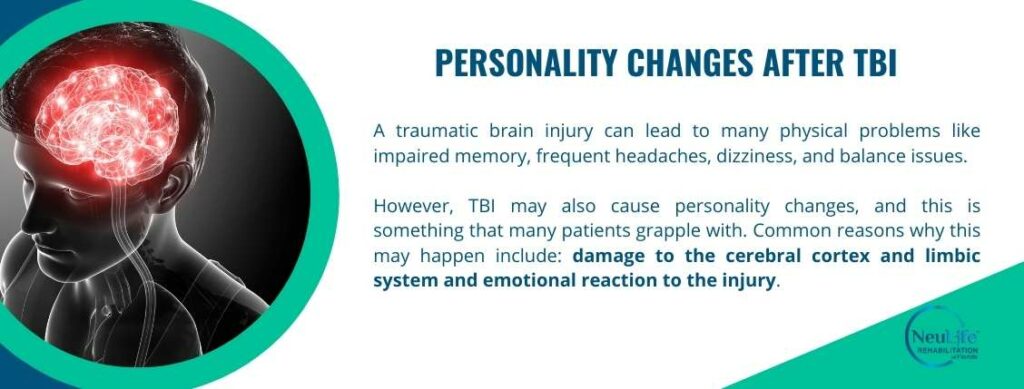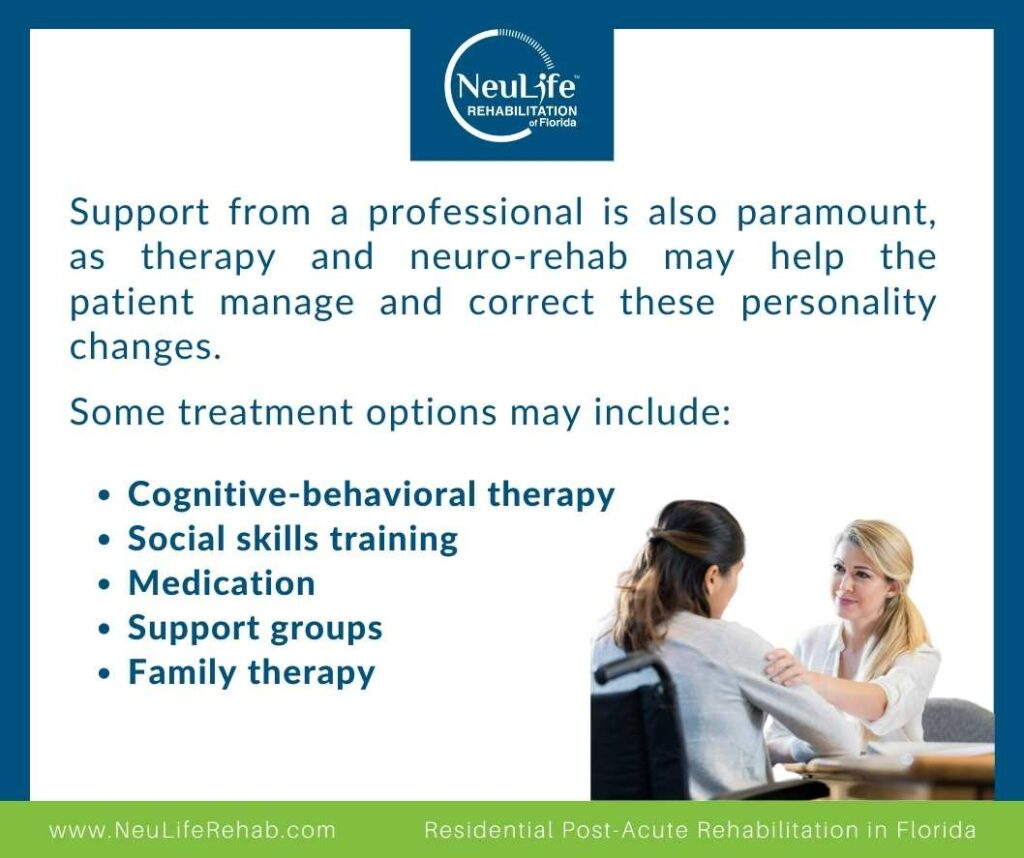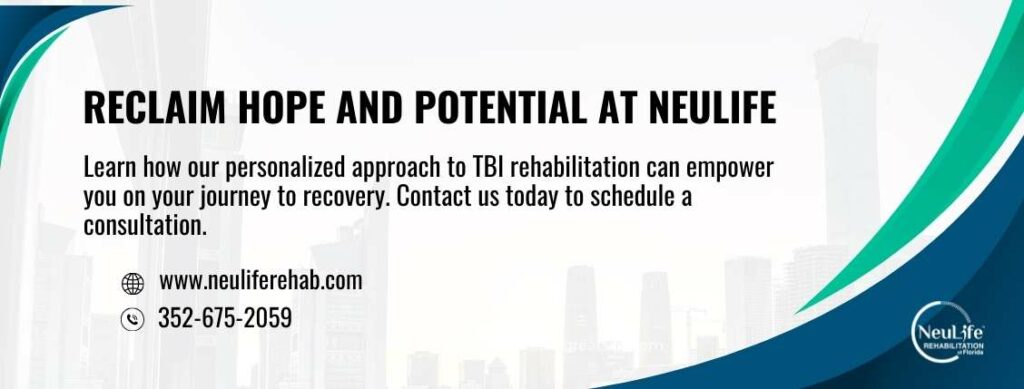Imagine waking up after an accident and feeling like a stranger inhabits your own body. This can be a reality for some individuals who have experienced a traumatic brain injury (TBI).
Beyond the physical challenges, TBI can also lead to significant changes in personality, leaving patients and loved ones grappling with a new normal.

This blog post explores the reasons why personality shifts occur after TBI. We'll explore the impact of brain damage on various functions, the emotional toll of the injury, and how these factors combine to create personality changes.
A traumatic brain injury (TBI) can lead to many physical problems like impaired memory, frequent headaches, dizziness, and balance issues.
However, TBI may also cause personality changes, and this is something that many patients grapple with. Here's a breakdown of some frequently observed shifts, along with relevant statistics:
Thus, a psychological evaluation following a TBI is essential to facilitate a better treatment plan for the patient.
Scientists cannot pinpoint the exact reason why traumatic brain injuries can change one's personality. But here are two primary reasons why these changes happen:
Experts in neuro-rehab widely believe that TBI affects the intricate connections between the cerebral cortex and the limbic system. The cerebral cortex helps the brain process memory, cognition, perception, and awareness.
The limbic system, located below the cerebral cortex, is the center for brain functions like emotions and behaviors.
A TBI can be a life-altering event. Patients may experience frustration, depression, and anxiety as they cope with physical limitations, cognitive difficulties, and a changed sense of self. These emotions can manifest as changes in behavior or personality.
Studies suggest that up to 77% of patients can develop mood disorders (e.g., depression, anxiety problems) within a year of experiencing a traumatic brain injury.
Some experts in post-acute rehabilitation also believe that patients who experience TBI are already in an exceptionally stressful situation. People respond to any form of extreme trauma in the body differently.
Some TBI survivors may end up doing or saying things they don’t mean, while other patients become more emotional than they were before they suffered a TBI.
Some patients present heightened aggression and quickly become frustrated and short-tempered. For others, the changes could be subtle and less significant.
It's challenging for many patients to recover from a traumatic brain injury. It's important, however, to recognize the emotion and understand why these changes happen to prevent a full-blown mental illness.

Here's how you can offer support to someone navigating these challenges:
Create a safe space for open and honest communication. Talk to them about your concerns in a supportive and non-judgmental way.
Knowledge is power. Learning about TBI and its effects on personality can help you be more patient and empathetic. Families or friends around the patient must also be sensitive to these changes.
Support from a professional is also paramount, as therapy and neuro-rehab may help the patient manage and correct these personality changes. Some treatment options to help patients manage their personality changes after TBI include:
This therapy helps patients identify and change negative thought patterns contributing to emotional dysregulation. CBT can be highly effective in managing symptoms like irritability, anxiety, and depression.
This type of therapy helps patients relearn social skills that may have been affected by the TBI. It can teach them to understand social cues, interpret facial expressions, and maintain healthy relationships.
In some cases, medication may help manage co-occurring mental health conditions like depression or anxiety that can contribute to personality changes. It's essential to work with a doctor to determine the best course of medication management.
Connecting with others who understand the challenges of TBI can be incredibly helpful. Support groups can provide a space for patients to share their experiences, learn coping mechanisms, and feel less alone.
Therapy can help families learn how to communicate effectively and support their loved ones.
A traumatic brain injury can leave a lasting impact not only on physical abilities but also on a person's personality and emotional well-being.

NeuLife Rehabilitation understands the multifaceted challenges of TBI recovery. That’s why we are dedicated to helping patients regain their independence and navigate the full spectrum of TBI’s effects, including personality changes.
Our experienced team specializes in different types of rehabilitative programs, such as:
Schedule a consultation with our team and learn how our personalized approach to TBI rehabilitation can empower you on your journey to recovery.
NeuLife is a residential post-acute rehab facility specializing in brain injury rehabilitation. As one of the best post-acute rehabilitation centers in Florida, its program includes:
Beautifully situated on 43 acres in Mount Dora, Florida, its inpatient rehab facility comprises over 60,000 square feet and contains 54 private rooms or suites. If you would like more information about NeuLife Rehabilitation services, please contact us.
The material contained on this site is for informational purposes only and DOES NOT CONSTITUTE THE PROVIDING OF MEDICAL ADVICE, and is not intended to be a substitute for independent professional medical judgment, advice, diagnosis, or treatment. Always seek the advice of your physician or other qualified healthcare providers with any questions or concerns you may have regarding your health.

We know that choosing the next step in your recovery from a catastrophic illness or injury is complex. Together, we can help you take the next step.
Contact us with any questions today.